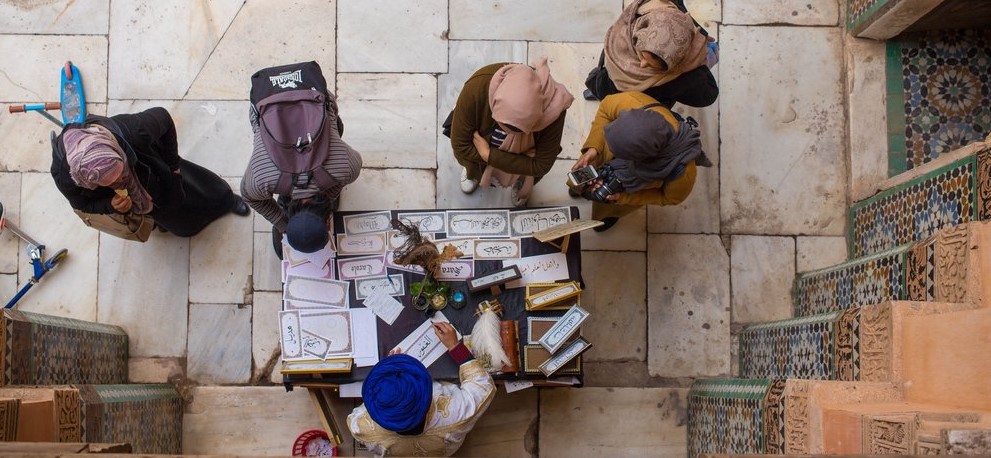Female Participation in Technical and Vocational Education and Employment
- There is currently a lack of research on how Qatar’s knowledge–based economic development will shape future education and employment decisions of females
- Young women need more female role models in technical fields and must be exposed to technical industries through structured programs and partnerships
Qatar Today featured Tahseen Consulting’s research on the difficulties Qatar faces in terms of promoting technical and vocational education amongst females. We have included the original article below.
We crafted a policy agenda that offers systemic reforms to empower women.
Learn about our Public Sector Strategy and Execution here.
Women Wanted: Attracting Women to Technical Fields in Qatar
Over the past several decades Qatar has dramatically reformed its education and training system to align it with macroeconomic policies aimed at advancing towards a knowledge-based economy.
However, technical vocational education and training (TVET) has not been a significant focus of educational reform.
Though the need for a technically trained labor force was recognized by policy makers in Qatar as early as the 1940s when Qatar began exporting oil, dedicated TVET institutions began to emerge only in the late 1990s with establishment of several postsecondary institutions, two secondary institutions for boys, government-run training academies, and the emergence of a private training market.
Despite the proliferation of TVET institutions, many of the governance institutions that provide regulation and coordinate policy and institutional stakeholders are still in a nascent state.
TVET policies in Qatar have largely proceeded without a clear conceptualization of what fields it encompasses and whether TVET leads to jobs which are considered acceptable to Qataris.
Lack of a clear definition of what constitutes TVET and overcoming negative stereotypes related to TVET in Qatar are key challenges to policy formation. TVET faces an identity crisis in which people are unhappy with the name, the image, and reputation.
The Missing Half of the TVET Debate: Female Participation in TVET and Employment in Technical Fields
While prior research has established that Qatari females attend higher education at much higher rates than males and has explored reasons why men fail to continue on to higher education, very few studies have explored why Qatari females pursue academic education over TVET. There is also a lack of research concerning the labor market decisions of Qatari females and how highly technical, knowledge-intensive fields expected to emerge as a result of Qatar’s knowledge–based economic development will shape future education and employment decisions of females.
According to United Nations statistics, 73% of all students attending higher education programs in Qatar are women.
This number is second only to Bahrain in the Gulf Cooperation Council. However, only 38% of the students pursuing TVET education in Qatar are women despite emerging employment opportunities in technical fields. Qatar has one of the highest female labor market participation rates in the Arab World. Because a large number of women attend academic higher education and enter the labor market, many people view the lack of female enrollment and employment in technical fields as a low priority issue.
High female employment concentrations in select public sector fields is inconsistent with the country’s economic ambitions to grow technology and innovation-driven industries as Qatar transitions to a knowledge economy.
As Qatar prepares to host the World Cup in 2022 and continues to diversify its economy beyond the extractive industries, it must ensure that its education and training system is able to evolve to meet its economic ambitions, particularly with regards to inclusion of females in high skill, high wage technical fields which are expected to emerge as Qatar transitions to a knowledge-based economy.
Females Face Significant Challenges and Barriers to Entering Technical Work
A strong commitment was made to TVET reform and female employment in the Qatar National Vision 2030, National Development Strategy 2011 – 2016, and Education and Training Sector Strategy in order to realize Qatar’s economic development ambitions. However, several gender issues related to TVET participation and labor market outcomes for women in Qatar deserve attention:
Though improving, female enrollment in TVET is comparably low: Despite Qatar’s significant gains in reforming higher education, several institutional gaps still exist, such as a lack of secondary TVET schools for women. This lack of secondary technical schools for women stands at odds with data released by the Qatar Statistics Authority which show that Qatari women contribute significantly to emerging technical sectors of the Qatari economy such as ICT, utilities provision, oil and gas, and technical research. The large number of female students who pursue an academic higher education pathway in Qatar is heavily influenced by the absence of secondary TVET institutions for women, lack of early career guidance, and few experiential opportunities for girls to be exposed to technical fields at a young age.
While notable increases towards gender parity in post-secondary TVET have been observed recently, there is still room for improvement and for rethinking how girls can be exposed to technical educational tracks earlier in their schooling.
There is also a strong economic rationale for women considering technical education and employment. Research from the Qatar General Secretariat for Development Planning shows that private rates of return for short, technically focused diploma studies exceed those for higher education. This means that, on average, women who pursue technical diplomas make more in terms of average lifetime salaries than women who pursue academic tracks at the higher education level.
Women receive less on the job training opportunities:
Over the past decade, the number of training institutions which provide training privately and in the workplace in Qatar has grown dramatically.
This is due to the emergence of a private training market as well as several government and mixed companies establishing internal training units. While lack of policies concerning licensing and quality control of Qatar’s private training institutions has been highlighted as a high priority issue, a potentially bigger issue of concern is that data from the Qatar Statistics Authority show women receive substantially less on the job training than men once they are employed. As more women enter the labor market in Qatar and work for longer periods before leaving the labor force, low levels of training for women could potentially serve as a bottleneck that limits the overall effectiveness of organizations in Qatar. Several studies show operations, productivity, revenue, potential for innovation, and product quality are impacted when employees fail to receive training to renew their skills to emerging organizational requirements.
Though they are trained in TVET fields, women often wind up employed in the public sector, education, and social work: Evolving socio-cultural values often affect the education and career decisions of women. For example, while there has been a notable rise in the enrollment of women in TVET institutions, 80% of the Qatari female labor force is employed in less technical sectors such as public administration and defense, education, and human health and social work. According to the most recent Qatar labor market survey, not a single Qatari woman is employed in an occupation in the international standard classification of occupations statistical groupings for craft and related trades workers and plant and machine operators and assemblers. The clustering of women in select occupations in government, education, and social work reflects a similar phenomenon as found in other Arab countries where individuals who have received specialized academic or TVET training ultimately wind up employed in positions not related to their original training.
In Qatar, cultural factors strongly influence women’s choice of employment.
A focus group convened by the General Secretariat for Development Planning and Ministry of Labor revealed that females prefer employment in the government sector, rather than privately-owned companies, since it is “conducive to their cultural requirements.” In addition to socio-cultural values which shape career choice, the high comparative wages paid to females in the public sector and the sectors dominated by government owned and mixed companies over other technically focused sectors is a significant economic deterrent to female entry into more diverse disciplines.
According to Qatar’s recent labor market survey, the average monthly salary for women employed in technical occupations is from 2,369 QR to 2,750 QR. This amounts to 14% of what a woman would earn employed in a professional role in the public sector.
Average monthly wages outside the public sector are comparatively unattractive relative to the high average monthly wage of 19,523 QR paid to women in the public sector. The extractive sector is the only sector in Qatar which offers a monthly wage that exceeds the average in the public sector.
Significant Education and Labor Market Reforms are Required
Strong TVET education systems have been shown to help nations prepare youth for future careers in technical industries associated with knowledge-based economies.
High rates of participation by Qatari females in the labor market will be essential if Qatar is to reach its ambitious economic development goals.
However, to ensure that females not only receive the training they need but also transition to technical fields, a number of barriers that serve as disincentives to TVET enrollment and women’s work in technical fields must be addressed.
A priority for Qatar should be to offer options for TVET education for females at the secondary level. The fact that females start their exposure to TVET later than males has many important repercussions – not only depriving females from exposure to TVET options but also subtly implying that TVET education is worse than academic education or is not appropriate for females. The effect is likely to discourage females from pursuing TVET education at the post-secondary level. Expanded institutional offerings should be accompanied by a rethinking of sponsorship and scholarship schemes which serve to perpetuate existing stereotypes about the roles that women should perform and the types of education they pursue.
To bolster the number of women in TVET education and jobs, Qatar must continue to emphasize technical vocational education and training for women while making technical careers more competitive in terms of pay and stature.
Labor market policies must be pursued that reduce the pay and benefit differentials between the public sector and private sector employment in technical industries. An initial step in achieving this is identifying economic sectors with the potential to generate high skill, high wage employment opportunities for women. Given Qatar’s strong economic performance in the finance, aviation, and hospitality industries, these might be areas to expand TVET options.
A long-term public awareness campaign that highlights women who are successful in TVET fields and focuses on the value of TVET to Qatar’s development will also be essential. Young women need more female role models in technical fields and must be exposed to technical industries through structured programs and partnerships. Employers which require technically trained staff must also make a concerted effort to entice more women into technical sectors of the labor market by engaging universities and training institutes, providing directed career guidance, and offering scholarships.
On-the-job training and mentorships can further enhance the role of women in technical careers in Qatar.
The Role of Women Beyond 2022
While some have suggested that the awarding of the World Cup 2022 to Qatar has brought clarity as to economic sectors that could provide employment opportunities over the next several years, Qatar must continue to retain its focus on 2030 and beyond.
While the World Cup will create economic and job opportunities over the next decade, it remains unclear if these positions will be of interest to women and whether the employment opportunities created will be in line with Qatar’s focus on creating innovative, skilled industries associated with knowledge economies. As the recent Olympics held in London showed, many of the jobs created by large showcase events are concentrated in the construction and retail sectors which currently do not offer sufficient wages to attract Qataris. Qatar will have to think hard about whether gearing the education and training system to accommodate large scale events like the World Cup may ultimately stray from the vision articulated in the Qatar National Vision 2030 and National Development Strategy which emphasizes the development of innovation-driven, knowledge-based industries which can sustain Qatar’s rapid economic growth into the future.

















































